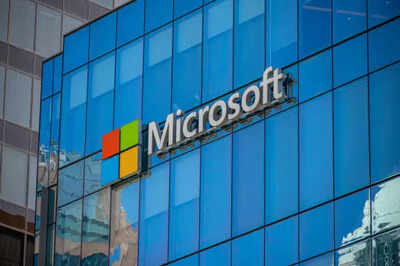ARTICLE AD BOX

Microsoft launched MAI-Image-1—its first homegrown image generator—and it's already muscled into LMArena's top 10, outpacing models that have had far longer to establish themselves.
Unlike competitors focused on artistic or stylized outputs, MAI-Image-1 targets photorealism with surgical precision. Microsoft collaborated with creative professionals during development to eliminate the repetitive, generic-looking results that often betray AI-generated content. The model specializes in natural lighting, landscapes, and lifelike imagery while delivering results faster than bulkier alternatives.
Integration with Copilot and Bing Image Creator is imminent, bringing the technology directly to millions of users.
Building an AI arsenal beyond OpenAI's shadow
MAI-Image-1 joins an expanding arsenal of homegrown Microsoft AI tools. Voice generator MAI-Voice-1 and chatbot MAI-1-preview both launched earlier this year, part of what AI division chief Mustafa Suleyman calls "an enormous five-year roadmap." The message is clear: Microsoft is building infrastructure that doesn't require OpenAI's blessing or technology.
This strategy crystallized in September when Microsoft announced Anthropic's Claude models would power Microsoft 365 Copilot features alongside OpenAI's technology—ending years of OpenAI exclusivity. Microsoft executives reportedly believe Claude Sonnet 4 delivers superior results for specific tasks, particularly generating polished PowerPoint presentations, undermining OpenAI's once-unquestioned supremacy in Microsoft's ecosystem.
The $13 billion partnership is going through a rough phase
Behind the product launches lies a partnership disintegrating under financial and strategic pressures. Microsoft has poured over $13 billion into OpenAI since 2019, securing 20% of revenues up to $92 billion. Now both companies are locked in contentious negotiations over equity stakes, revenue splits, and the "AGI clause"—contract language that would sever Microsoft's access to OpenAI technology once artificial general intelligence arrives.OpenAI is aggressively pursuing independence, launching infrastructure projects with Oracle and Google Cloud while partnering with Broadcom to manufacture proprietary AI chips by 2026. Microsoft, meanwhile, is hedging its bets with Anthropic while accelerating internal development. What was once tech's most powerful AI alliance now resembles a messy separation neither party wanted but both saw coming.

 3 hours ago
5
3 hours ago
5









 English (US) ·
English (US) ·